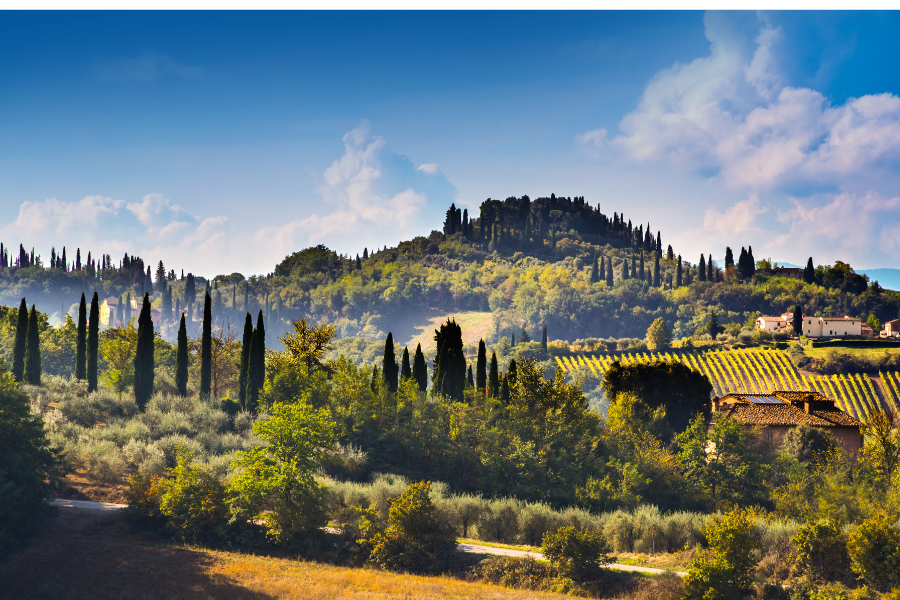How often do you spend time in nature? We are becoming increasingly disconnected from our natural world. City life, hectic schedules and our over-dependence on our tech gadgets make it seem difficult to connect with the earth for even 5 minutes in a day.
However, prioritizing time in nature is important to our wellbeing as humans. Research shows that you can reap some major benefits just by being in a natural environment for as little as two hours in a week. Immersing yourself in nature has been proven to generate positive emotions, such as happiness and calmness. Nature is good for the brain. It reduces anxiety and depression, promotes creativity and helps you focus.
Nature Helps Restore Concentration And Mental Fatigue
The Attention Restoration Theory (ART) came about in the 1980s and 90s when technology started playing a bigger role in our homes and daily lives. For the first time, adults and children started spending more time indoors than outdoors. ART proposed that nature helped restore processes linked to the prefrontal cortex of the brain, such as focus and attention in humans.
The theory suggested that there are four cognitive stages to mental restoration
- Clearer thoughts or concentration
- Mental fatigue recovery
- Sense of interest or soft fascination
- Reflection and restoration
Since then, many studies have been conducted to test this theory. Some significant findings were found in nature’s restorative benefits for mental fatigue, stress and ADHD.
Nature was proved to significantly restore attention especially after losing focus. Living in a green space showed to increase mental health and better equip people’s ability to handle stressful events. Lastly, children with ADHD showed reduced symptoms and increased cognitive performance just by being immersed in nature.
It Helps With Creative Problem Solving
Being in a natural environment has also shown to increase creativity and help with critical thinking. A 2012 study analyzed how nature impacted higher mental tasks like creative problem solving. A group of participants were asked to perform puzzles after a gadget-free, 4 day hiking trip. This group showed a significant difference in creativity and problem solving compared to the group that completed the puzzles before the hike. In fact, the results showed a 50% increase in performance after being in nature.
It Helps With Mental Health
It’s also been proven that nature makes you happier, have more energy and be better equipped to tackle life stressors.
A 2018 Japanese study looked at the psychological impact of walking through a forest for 15 minutes versus walking in the city. The results found that even this short exposure to natural scenery had a significant reduction in negative moods, including depression, anxiety, anger, confusion and fatigue. It was also shown to increase positive mood and energy.
Other research looked at how the environment affects brain plasticity. Brain plasticity is the ability that our brain has to create new neural pathways and rewire itself. This shapes our cognition, learning capability and healing ability in cases of brain trauma and neural degenerative disorders, like Alheizmers.
It found that living closer to nature promoted better “amygdala integrity.” The amygdala is an area of the brain that primarily helps process emotions, memories and information related to fear. Those with better amygdala integrity can better handle environmental stressors.
Nature Therapy
Throughout history there have been various documented references to how the natural earth benefits us. As studies began scientifically proving this to be true, eco treatments started becoming more prevalent in different parts of the world. In South Korea medical doctors are even prescribing immersions in nature.
Forest bathing or Shinrin-yoku is a Japanese term coined in the 1980s that has ancient roots in Asian culture. The idea is digitally detoxing and surrounding yourself in nature while bringing attention to your senses – what you see, hear, smell and feel.
The earth is good for your mind and soul. Beside making you feel good, there are a ton of proven effects on your mental and psychological well being. Give it a go and try for yourself. You will feel calm and connected. Nature is precious and sacred for us humans and it’s our responsibility to protect it.
> Read about 7 easy ways to connect with nature, here.
> Read about the 13 benefits of trees by clicking here.
> Read our essential guide for plant parent newbies, here
Sources: Psychological Benefits of Walking through Forest Areas – The International Journal of Environmental Research and Public Health, What is Kaplan’s Attention Restoration Theory (ART) – Positive Psychology, Creativity in the Wild – National Library of Medicine, Mental Health Foundation article on mental health and environment, Why Trees Make you Happier – Greater Good Magazine from Berkeley University






